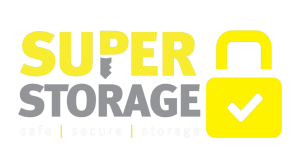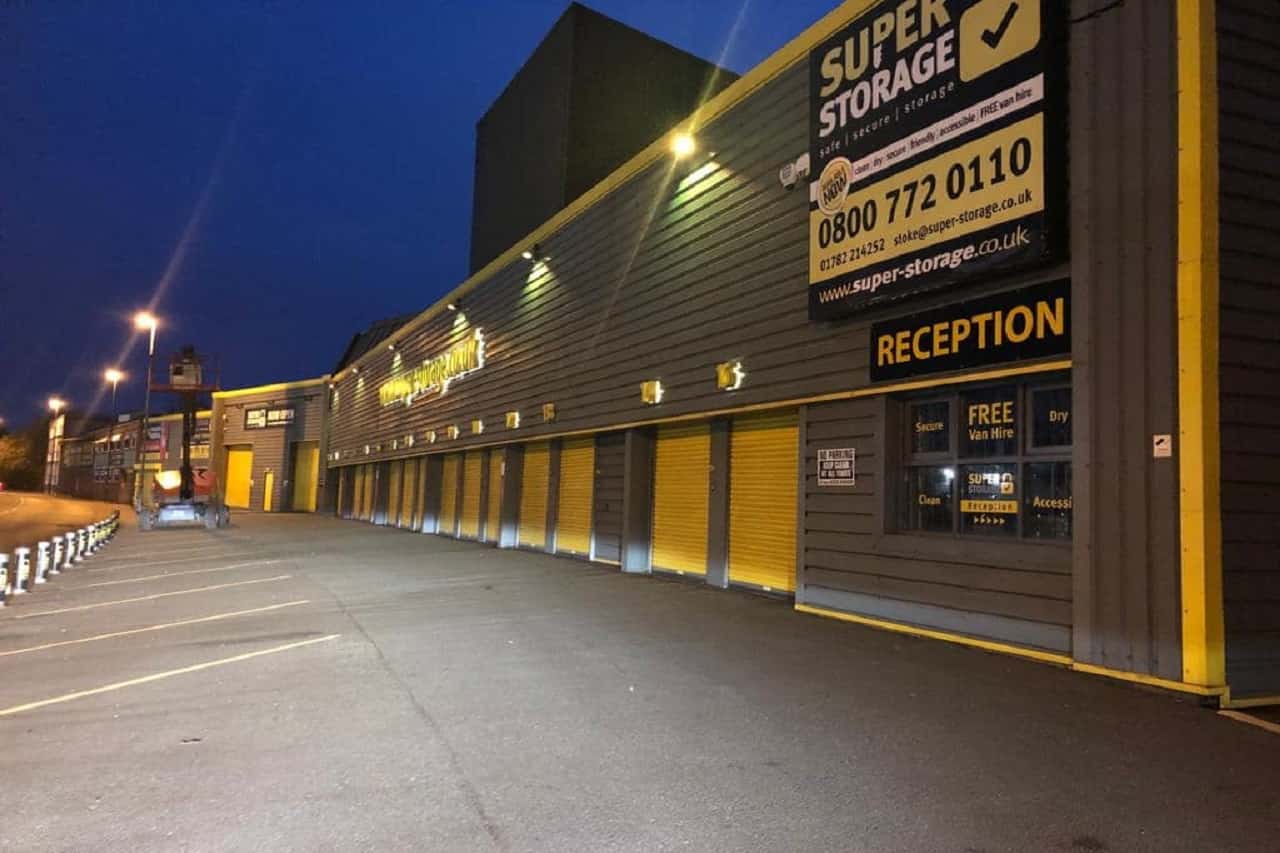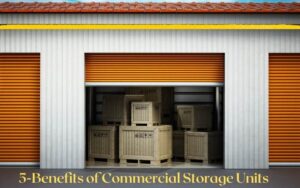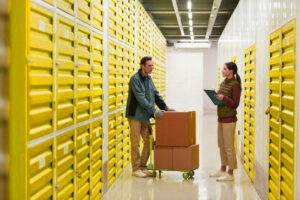Self-storage units are often associated with personal storage, a place to keep household items, furniture, or seasonal belongings. However, in recent years, the commercial usage of self-storage units has grown rapidly, offering businesses flexible, secure, and cost-effective solutions to manage inventory, equipment, and important documents.
For many companies, having extra storage space off-site can make a big difference to daily operations. Whether it’s storing excess stock, archiving paperwork, or even running small-scale operations from within the unit, the benefits of commercial storage go far beyond just keeping things out of the office.
In this guide, we’ll explore the various ways businesses use self-storage units, the advantages they offer, and why commercial storage is becoming a vital part of modern business strategy.
Why Businesses are Turning to Self-Storage Units
The rising cost of office and warehouse space has forced many companies to rethink how they store and manage their assets. Self-storage for businesses provides:
- Flexible rental terms — pay only for the space and time you need.
- Secure facilities — with CCTV, gated access, and 24/7 monitoring.
- Specialised amenities — such as climate control, electricity, and drive-up access.
- Convenient locations — close to major roads and business hubs for easy access.
For small to medium-sized enterprises (SMEs), this can mean big savings without sacrificing efficiency or security.
Common Commercial Uses for Self-Storage Units
Businesses from a wide range of industries are discovering the value of commercial storage. Here are some of the most common ways companies use these units.
1. Inventory Storage for Retailers and E-Commerce
Retail stores and online sellers often struggle with limited stockroom space. By using a self-storage unit, businesses can:
- Store seasonal or excess stock safely.
- Organise inventory using shelving and labelling systems.
- Access products easily when fulfilling orders.
This is especially useful for e-commerce businesses that need space for bulk orders without committing to expensive warehouse leases.
2. Storing Tools, Equipment, and Supplies for Tradespeople
Construction companies, plumbers, electricians, and other tradespeople often require secure space for:
- Power tools and machinery.
- Spare parts and materials.
- Safety equipment and uniforms.
With drive-up access, trades can load and unload quickly without wasting time.
3. Archive and Document Storage for Offices
Paperwork can take up valuable office space, yet businesses often have legal requirements to keep records for several years. Commercial storage units provide:
- Climate-controlled environments to protect paper documents.
- Organised shelving for easy retrieval.
- A secure location to store confidential files.
This is particularly valuable for accountants, solicitors, and financial advisors.
4. Temporary Storage During Office Moves or Renovations
During relocations, expansions, or refurbishments, companies often need a short-term place to store office furniture, IT equipment, and sensitive documents. Self-storage provides a secure, flexible, and affordable temporary solution.
5. Storage for Marketing and Sales Teams
Sales and marketing professionals often have bulky promotional materials such as:
- Exhibition stands.
- Event furniture.
- Banners, flyers, and giveaways.
Rather than cluttering the office, these items can be stored neatly until needed for the next event or trade show.
6. Specialist Storage for Medical and Pharmaceutical Companies
Some commercial units offer climate control, making them ideal for storing:
- Medicines and medical supplies.
- Pharmaceutical equipment.
- Temperature-sensitive materials.
7. Running Small-Scale Business Operations
Some self-storage facilities allow businesses to operate directly from the unit, provided they follow the site’s rules. Examples include:
- Online retail packaging hubs.
- Photography and video production studios.
- Small-scale workshops or repair stations.
Key Benefits of Commercial Self-Storage
Cost-Effectiveness
Compared to renting commercial warehouse space, self-storage units are significantly cheaper and come with flexible terms, perfect for businesses that need seasonal or fluctuating storage.
Security
Facilities are equipped with CCTV, secure access codes, and alarm systems, giving peace of mind that valuable stock and equipment are protected.
Flexibility
You can upgrade or downsize your unit as your business needs change, avoiding the long-term commitments of traditional leases.
Convenience
Extended access hours (often 24/7) mean you can retrieve or store items whenever it suits your schedule.
Choosing the Right Commercial Self-Storage Unit
When selecting a self-storage facility for your business, consider:
- Location — Choose a unit close to your office or customer base for easy access.
- Size — Make sure you have enough space now and for future needs.
- Security — Look for CCTV, gated access, and secure locks.
- Amenities — Climate control, electricity, shelving, and drive-up access can all add value.
How Super Storage Supports Businesses
At Super Storage, we provide secure, flexible, and affordable commercial self-storage units designed to meet the needs of all types of businesses. Whether you’re an e-commerce seller, a tradesperson, or a corporate office needing extra space, our facilities offer:
- A range of unit sizes.
- 24/7 access for your convenience.
- Excellent transport links in and around Stoke-on-Trent.
We help you focus on running your business while we take care of your storage needs.
Final Thoughts
The commercial usage of self-storage units is no longer limited to just storing boxes, it’s a vital, cost-effective business solution for managing inventory, equipment, and documents. With the right storage partner, you can free up valuable office space, improve organisation, and scale your operations without the burden of high property costs.
If you’re ready to explore secure, flexible, and business-friendly storage options, contact Super Storage today and discover how we can help your business thrive.
Frequently Ask Question
What can businesses store in a self-storage unit?
Businesses can store documents, inventory, office furniture, seasonal stock, promotional materials, and equipment in a self-storage unit, as long as items comply with storage facility rules.
How can self-storage help small businesses?
Self-storage can help small businesses reduce office clutter, securely store stock, and avoid costly warehouse leases, providing flexibility for growth.
Is it legal to run a business from a self-storage unit?
You can use a self-storage unit for stock management or equipment storage, but most facilities do not allow customers or employees to work directly from the unit. Always check your provider’s terms.
How much does commercial self-storage cost?
The cost depends on unit size, location, and contract length. Many providers, including Super Storage, offer flexible terms and competitive rates for businesses.




